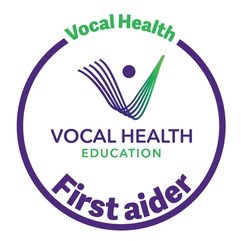Practicing 101
Sunday, August 8, 2021 by Karen Lecky-Springer | Practice
Practicing 101:
Balancing school, homework, music lessons, sports, shows, volunteer work, and family time can already seem a daunting task. Whether or not you love to practice, you can't forget to schedule regular practice sessions in your schedule. These sessions can be relatively short and effective- if you plan them right!
How often and how long should I practice?
There is no “one-size-fits-all” answer to this question, as varying factors all contribute to how you will schedule practice sessions; however, I can say with 100% confidence that more is NOT always better!
Remember, your voice is made up of a series of muscles. Just like any other athlete, you have to build up strength in these muscles over time. You wouldn’t jump into a marathon (or even a half-marathon) without training for such a distance, right? The same can be applied to singing, and practice (training). More advanced singers can practice for a few hours a day, but your average beginner may only be able to manage 15-20 minutes, or less, depending on the day. The key is to use your time effectively- have a system with clear goals laid out beforehand and you will make the most of these sessions.
As a general rule of thumb, try to practice regularly- about 4-5 times a week. Just like athletes, your muscles benefit greatly from having a “recovery day” after use. If you make it a goal to practice at least every-other day, that should be plenty! Take time at the beginning of each week/month, or whenever you set your schedule, to set time aside for practicing- AND STICK TO IT! Practicing should be attended just as any other appointment you have in your calendar. I know I do everything I can to make my monthly massages a priority along with my favorite Friday night TV shows- practice time should hold just as much weight on your calendar as those other highly coveted appointments.
Beginners should try to fit in regular practice sessions of about 15-20 minutes of singing every other day at a minimum. At this stage, your voice muscles are not used to singing with proper technique. If too much effort is put in for too long, injury can occur- so keep it short, sweet, and systematic. I will lay out a practice system out for you shortly.
Intermediate singers (those who have had a few months/year of lessons under their belt) can better understand when they are putting in too much effort while singing and have some tools at their disposal to correct or cease the strained actions. Depending on how your throat feels, and the intensity of your repertoire, you can aim for sessions around 25-45 minutes in length.
Advanced singers (those who have studied for several years) have flexibility and the knowledge necessary to successfully practice for an hour without risk of damage to the vocal mechanism. Although you may want to sing more than an hour, be careful not to over-do it! Keep listening to your throat and trust that more is not always better.
How to Practice?
Each practice session should include aspects of the following 4 steps. How long you spend on each step depends on your skill level, as well as the repertoire you are learning.
- Body Awareness/mobility:
This is the time to stretch your body- from your head down to your toes. Yoga, meditation, essentially anything that will bring your mind and body together is ideal.
-
Warm up (in this order):
- Straw exercises
- Other SOVT exercises (lip trills, tongue trills, [ng], etc,)
- Diaphragmatic exercises
- Sirens
- scales/arpeggios- mid voice
- range extension
- vowel placement
- messa di voce
- flexibility/coloratura
- Song practice with attention to technique:
Depending on what learning stage you are at with your repertoire, you will want to use this time to learn notes/rhythms (using SOVT technique), dynamics, etc. before ever singing on the text. Take it one or two phrases at a time and focus on one technical element at a time. As each day goes by, slowly add in the text and pay attention to technical elements as it pertains to the language in which you are singing.
Have a few small goals in mind before you begin your session: What technique will you focus on? How many phrases of music do you want to learn? Do you have a memorization goal? You get the idea…These small goals will give you a sense of accomplishment and keep you from simply “shooting in the dark” hoping you hit some of the concepts your teacher touched on in that week’s lesson.
- Sing – JUST TO SING! - to close out your session:
This is one of the most important steps to overcome performance anxiety and feel a sense of connection to the repertoire. For the last few minutes of each practice session- just SING! Don’t worry about technique, but just take time to feel the music, and tell a story. Think of the music, the lyrics, and let whatever comes, come! Don’t stop no matter what- come what may. It is in this important step that you remind yourself why you chose to sing in the first place.
Simply making the time to practice and having a goal-oriented system in place before stepping into the practice room will allow for you to practice more efficiently and effectively, leaving more time for you to stream your favorite TV show or head outside (to my favorite destination- the Theme Parks)!




